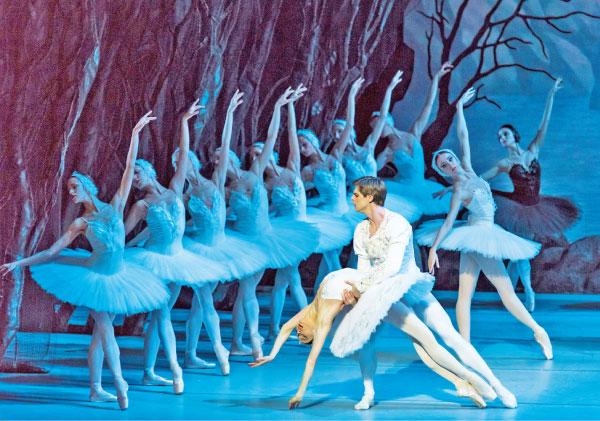
Pyotr Illyich Tchaikovsky, the Russian composer is one of the greatest composers of the Romantic era. His music has always been very popular through the ages, and remains so even today.
Tchaikovsky was born on May 7, 1840 in Kamsko - Votskink, Vyatka, Russia and his parents were Ilya Tchaikovsky, Manager of a metal works and an Alexandra Assiev, a lady of French emigre origin.
From his early childhood little Tchaikovsky showed a great interest in music and the orchestrina at home gave him his earliest musical experiences. His first recorded attempt at musical composition when he was four years old - a song written with his younger sister Alexandra. In 1845, Tchaikovsky began piano lessons with a local teacher and became familiar with Chopin’s marzukas and the Friedrich Karlbrenner’s piano pieces.
 |
| Pyotr Illyich Tchaikovsky |
At this time, there was no real opportunity for musical education in Russia and Tchaikovsky’s parents decided to prepare him for a career in the Civil Service.Thus, in 1850 he entered the Imperial School of Jurisprudence in St. Petersburg and studied there for nine years. But Tchaikovsky’s first love was music.
In 1854, his mother died of cholera. Luckily for Tchaikovsky, in his last year at the Imperial School of Jurisprudence in St. Petersburg, his father noticed his passion and talent for music and decided to allow him to follow this career. Tchaikovsky Senior asked Rudolph Kundinger, a professional teacher to teach his son music. When he was 17 years old Tchaikovsky was influenced by an Italian singing teacher Luigi Piccioli and the love of Italian music Tchaikovsky developed remained with him all his life. Another strong musical influence in his life was Mozart’s opera, Don Giovanni.
During the summer of 1861, he went on his first European tour and visited Germany, France and England. In fact, this was the first time he had left Russsia.
In October 1861, Tchaikovsky started music classes at the Russian Musical Society.In the autumn of 1862, the St. Petersburg Conservatory of Music opened and Tchaikovsky was one of the first students to enrol at this prestigious school of music, and was there for almost three years. He gave up his job as a clerk at the Ministry of Justice to devote all his time to music.
Tchaikovsky graduated in December 1865 and started teaching musical theory at the Russian Musical Society.
Tchaikovsky’s music became very popular with listener's and his works included seven symphonies, eleven operas, three ballsts, a violin concert of our cantatas, and over 100 songs and piano pieces. The first public performance of Tchaikovsky’s work was in 1865 when Johann Strauss Junior conducted his Characteristic Dances at a concert in Pavlovsk near St. Petersburg. In 1869, Tchaikovsky completed Romeo and Juliet and in 1870 it was performed successfully with Nikolay Rubinstein conducting it. This became the first of Tchakovsky’s compositions to eventually enter the standard international classical repertoire.
At the very end of 1876, Tchaikovsky left Russia for Europe and in 1877, Tchaikovsky married Antonina Milyukova , a student of music but the marriage was a failure. In 1876 Tchaikovsky found a friend and patron Nadezhda Von Meck who helped him financially for many years.
This European sojourn of Tchaikovsky’s proved to be creatively very productive . The opera Eugene Onegin, Symphony No 4 in F minor, the Violin Concerto in D major, Serenade for Strings in C major, Opus 48 and the 1812 Overture (1880) are among Tchaikovsky’s compositions during this time.
In 1876, Tchaikovsky finished composing Swan Lake, the first of his famous and much loved trilogy of ballets . The other two are the Nutcracker and the Sleeping Beauty.
In 1885, Tchaikovsky settled in Klin, near Moscow. In January 1887, he conducted the premiere of his opera Cherevichki overcoming his fear of conducting and at the year’s end he embarked on his first European Concert Tour as a conductor. The tour included Leipzeig, Berlin, Prague Hamburg, Paris and London.
In the Spring of 1891, Tchaikovsky was invited to New York for the opening of the Carnegie Hall in New York and in 1893, he was awarded an honorary doctorate by the University of Cambridge.
He composed the much loved Nutcracker Suite in 1892 and in February 1893, he began working on his Symphony No. 6 in B minor (Pathetique) which is perhaps his most popular and well loved sonata.
On October 16, Tchaikovsky conducted the premier of his new symphony in St. Petersburg. He was suddenly taken ill on October 21 with cholera and died four days later in St. Petersburg, Russia. However, some records give his date of death as November 6, 1893.
